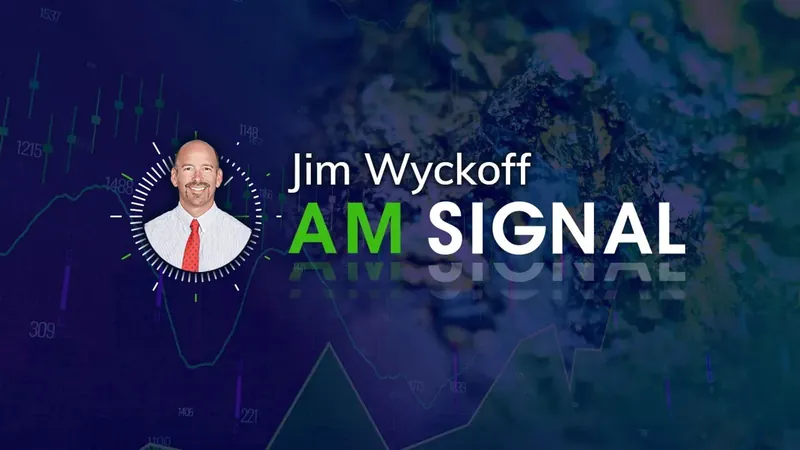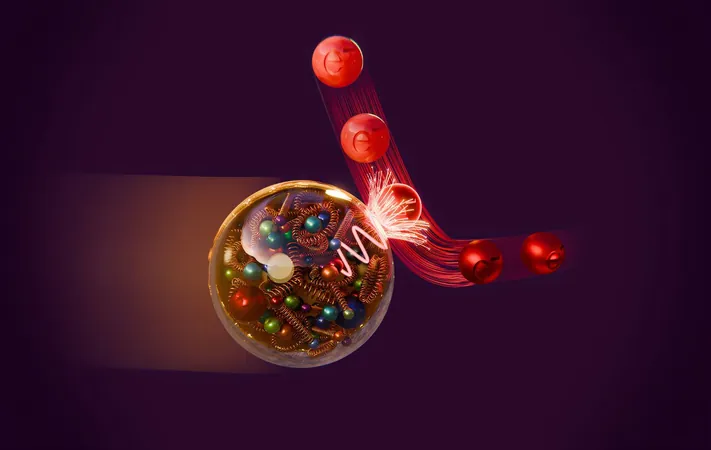
Russia Launches Second Kondor-FKA Satellite, Completing Powerful Radar Constellation
2024-12-02
Author: Olivia
Russia Launches Second Kondor-FKA Satellite, Completing Powerful Radar Constellation
In a significant milestone, Russia has successfully completed the deployment of its Kondor-FKA radar Earth observation satellite constellation with the launch of a second satellite. This advancement marks an important step for Russian capabilities in satellite-based monitoring and reconnaissance.
On November 29, 2023, at 6:50 a.m. local time (12:50 a.m. Moscow time on November 30), Roscosmos, Russia's space agency, launched a 1,000-kg (2,200-lb.) spacecraft aboard a Soyuz 2.1a rocket, equipped with a Fregat booster from the Vostochny spaceport in Far Eastern Russia. The new satellite has successfully entered a Sun-synchronous orbit, joining its predecessor, the first Kondor-FKA satellite, which was launched in May 2023.
The initial satellite underwent a seven-month validation process, during which it was revealed that only minor software enhancements were needed for the follow-up spacecraft, ensuring its operational readiness. Alexey Rabochiy, chief designer at NPO Mashinostroyenia, expressed confidence in the mission's success following the extensive evaluation period.
Equipped with advanced synthetic aperture radar (SAR) technology, the Kondor-FKA satellites can monitor Earth’s surface around the clock, including during inclement weather or smoke. The S-band radar features a 6-meter (20-foot) wide mirror antenna that can pivot, allowing it to capture images from both sides of the satellite’s flight path. The system boasts impressive resolution capabilities—ranging from 1-2 meters in spotlight mode, 2-3 meters in stripmap mode, and 6-12 meters during broader surveys—enabling up to 200 images daily in spotlight mode alone.
The addition of the second Kondor-FKA satellite enhances the system's capacity for interferometric imaging, which can gauge ground elevations with an accuracy of 4 meters or better. This feature will have significant implications for applications in environmental monitoring, agriculture, and disaster management.
While NPO Mashinostroyenia has indicated that Russian ministries responsible for emergency relief and agriculture are among the constellation's customers, experts suggest that the satellites are also likely being developed primarily for military reconnaissance purposes. This dual-use capability underscores the strategic importance of satellite technology in contemporary geopolitical contexts.
Furthermore, NPO Mashinostroyenia is progressing on a next-generation Kondor FKA-M satellite, expected to achieve an impressive 0.4-meter resolution in spotlight mode. The firm is also exploring the design of a smaller radar spacecraft that utilizes active electronically scanned array (AESA) technology, aimed at serving commercial markets, although it will have a lower resolution than the forthcoming Kondor FKA-M.
As the race for advanced satellite capabilities continues globally, Russia’s completion of the Kondor-FKA constellation signifies a robust commitment to amplifying its observational and reconnaissance portfolio in the ever-evolving realm of space technology.









 Brasil (PT)
Brasil (PT)
 Canada (EN)
Canada (EN)
 Chile (ES)
Chile (ES)
 España (ES)
España (ES)
 France (FR)
France (FR)
 Hong Kong (EN)
Hong Kong (EN)
 Italia (IT)
Italia (IT)
 日本 (JA)
日本 (JA)
 Magyarország (HU)
Magyarország (HU)
 Norge (NO)
Norge (NO)
 Polska (PL)
Polska (PL)
 Schweiz (DE)
Schweiz (DE)
 Singapore (EN)
Singapore (EN)
 Sverige (SV)
Sverige (SV)
 Suomi (FI)
Suomi (FI)
 Türkiye (TR)
Türkiye (TR)